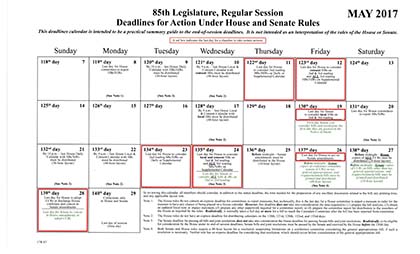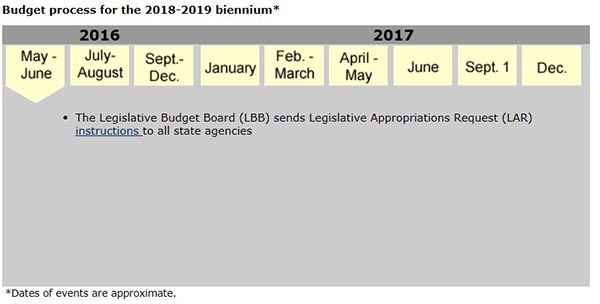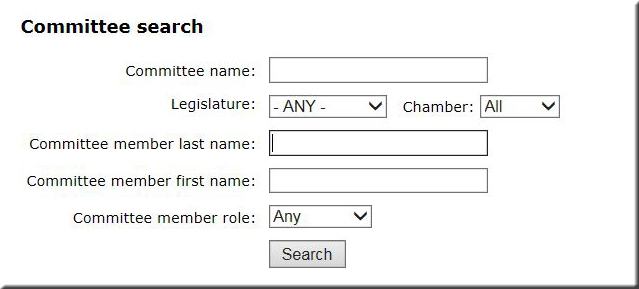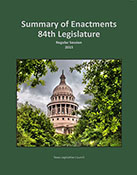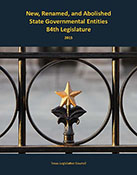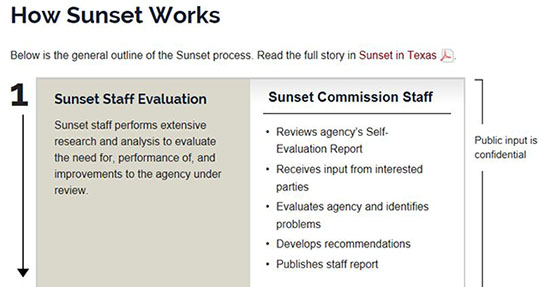|
Bills and Joint Resolutions
|
84th Regular Session
(Nov. 10, 2014-Feb. 26, 2015)
|
85th Regular Session
(Nov. 14, 2016-Feb. 23, 2017)
|
| House filed | 2,057 | 2,396 |
| Senate filed | 834 | 1,094 |
| Total filed | 2,891 | 3,490 |
| House referred to committee | 837 | 1,024 |
| Senate referred to committee | 721 | 814 |
| Total referred to committee | 1,558 | 1,838 |
| House scheduled for hearing | 25 | 3 |
| Senate scheduled for hearing | 24 | 32 |
| Total scheduled for hearing | 49 | 35 |
| House reported out of committee | 2 | 2 |
| Senate reported out of committee | 5 | 23 |
| Total reported out of committee | 7 | 25 |
This post includes a list of guides published by Texas legislative agencies to assist you in following the legislative process. These guides will help you track and read a bill, understand the terminology used in the Texas Legislature, learn about issues facing the Legislature, and much more.
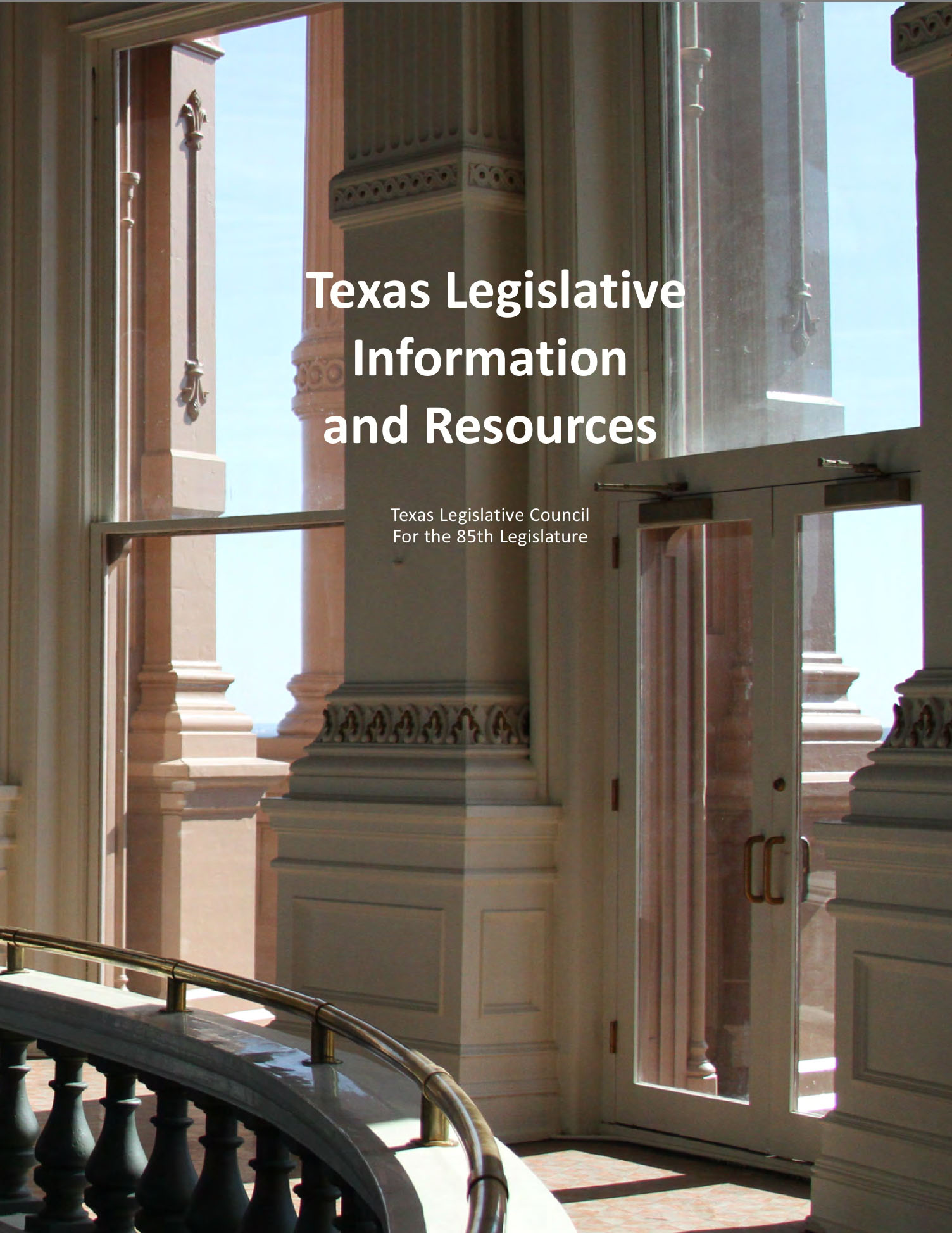
Texas Legislative Information and Resources, prepared by the Research Division of the Texas Legislative Council for the 85th Legislature (2017).
Identifies resources for locating information that is available about current and past legislation.
Research Spotlight: Legislative Lexicon, prepared by the Texas Senate Research Center (2017).
Provides definitions of words, terms, and phrases used in the Legislature.

Reading Statutes and Bills, prepared by the Research Division of the Texas Legislative Council (2017).
Presents a basic overview of Texas statutes and bills, as well as tips for reading and understanding them.

Topics for the 85th Legislature, by House Research Organization (2016).
Highlights many of the issues the 85th Legislature may consider during its 2017 regular session.

Texas Legislative Glossary, prepared by the Texas Legislative Council for the 85th Legislature.
Defines terms related to the legislative process in Texas.

Issues Facing the 85th Texas Legislature, prepared by the Texas Senate Research Center (2017).
Outlines broad categories and topics of interest for the 85th Legislature.

LRL's State Budget Diagram
Jun 21
- What were the standing and joint committees of the 69th Legislature?
- Has there ever been a committee to look at auto theft? (Answer: yes)
- What issues has the Senate Natural Resources Committee examined over the last 5 sessions?
- How long did the House Cultural and Historical Resources Committee exist and who served on it?
- What committees has my state senator or representative served on during their time in the legislature?
- Did he or she ever chair a committee?
- Who has chaired the Senate Finance Committee during its history?
- Name
- Legislation
- Effective/Abolished
- Function
- Composition
- Expiration Date

